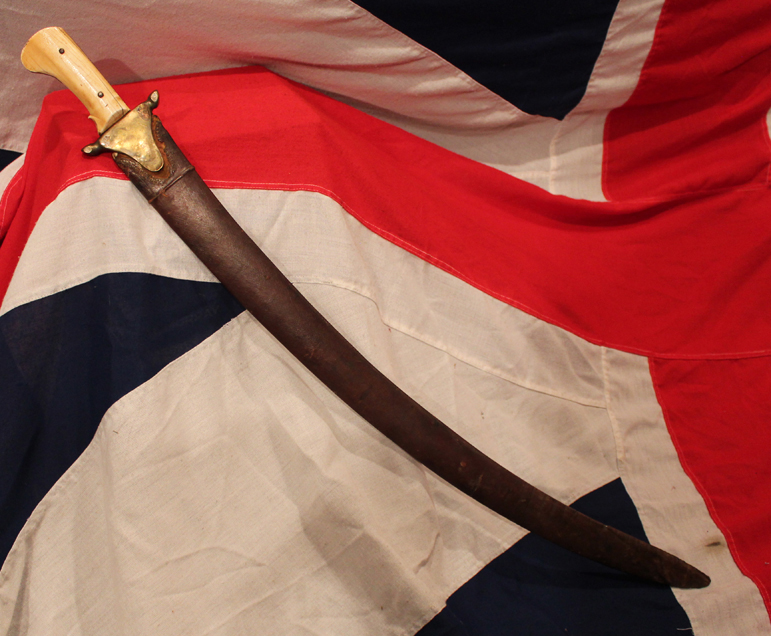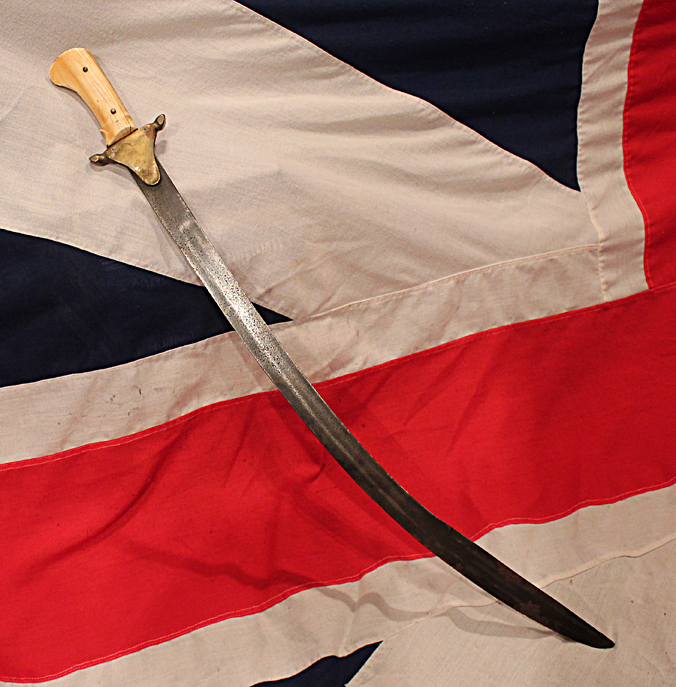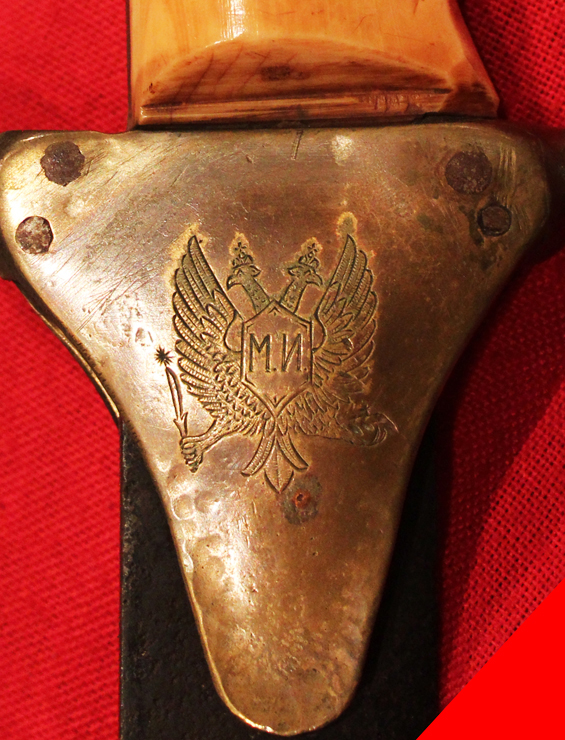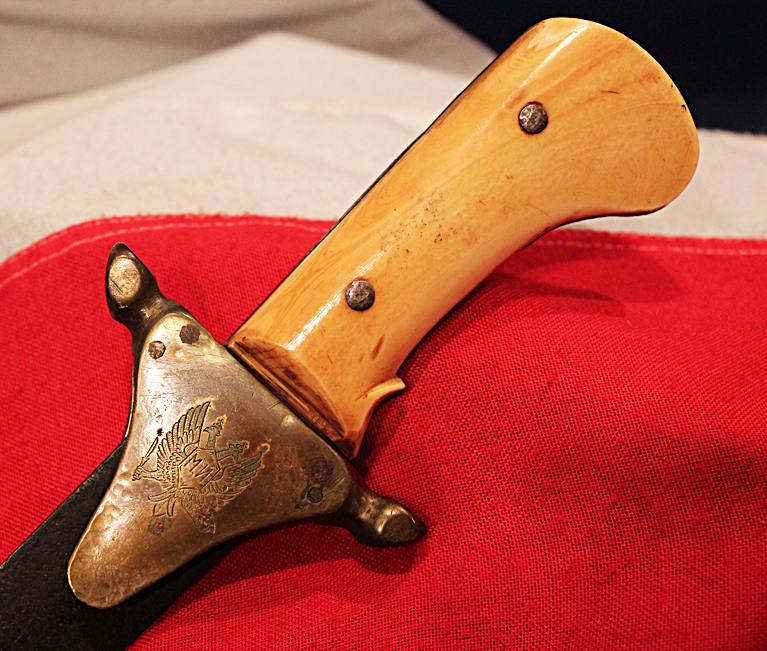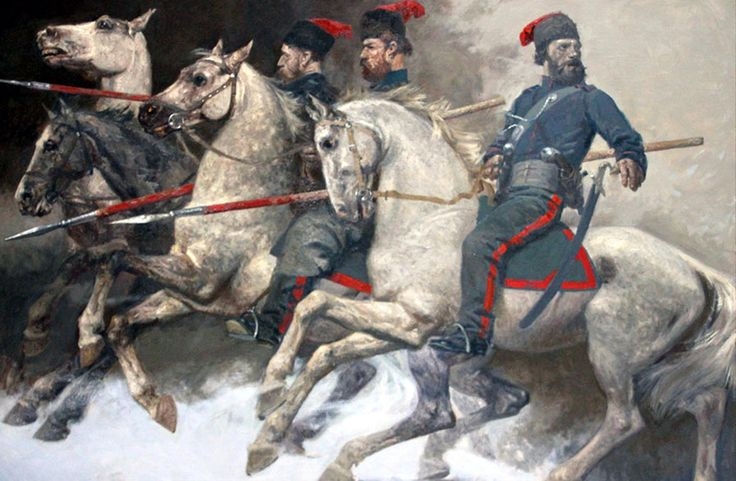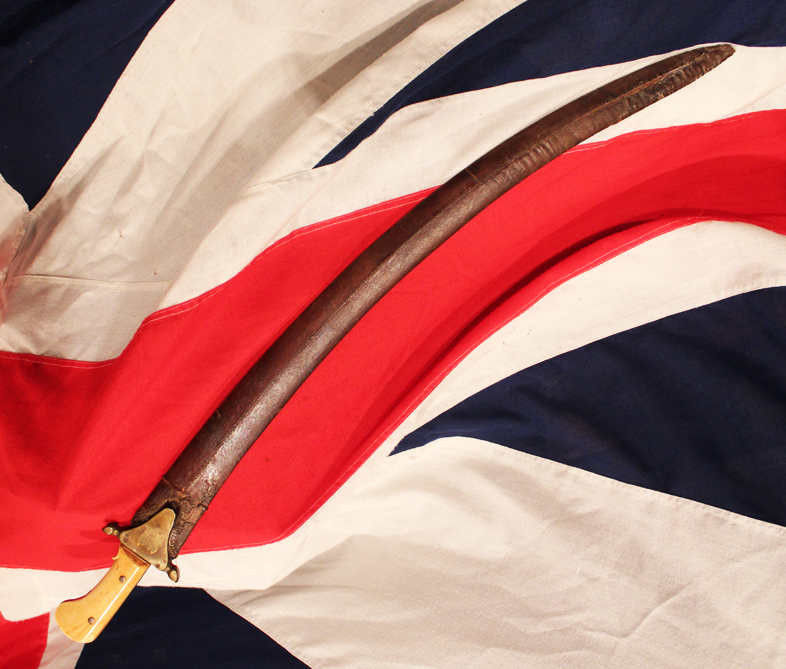A Very Good, Original, Napoleonic Wars Period, Imperial Russian Romanov Cavalry Sabre Engraved With The Russian Double Eagle Crest. French Invasion and Retreat From Moscow Period of 1812
Probably 18th to early 19th century from the era of Catherine the Great to Czar Alexander Ist. Russian campaign sabre from the 1812 Russian campaign, Borodino, Smolensk and Moscow. In the cossack sasqua style, worn with the blade cutting side up. With walrus tooth hilt and engraved quillon bearing the Russian Romanov double crowned twin headed eagle crest with two cyrillic letters English equivalent M E within a shield. Leather scabbard with chequered decoration and wire decorative seaming at the throat.
A little known fact about the Napoleon's campaign into Russia is that Napoleon’s army actually lost more men on the way to Moscow than on the way back. The heat, disease, battle and desertion meant that by the time the Russian capital was seen on the horizon he had lost half his men. Nevertheless, what was important to the Corsican General was that he had reached the city. Battles at Smolensk and Borodino along the way had been costly and hard-fought, but nothing Tsar Alexander had done had been able to halt the Imperial juggernaut in its tracks though he had managed to extricate most of the Russian army intact from the fighting. In September the exhausted and bloodied Grand Arm?e reached Moscow with its promise of food and shelter, but it was not to be. So determined were the Russians to resist the invader that they burned their own old and beautiful capital in order to deny its uses to the French. Camped in a burned and empty shell, Napoleon dithered about whether to remain over the bitter winter or claim victory and march home. He was mindful of earlier campaigns into Russia such as that of Charles XII of Sweden a century earlier and made the fateful decision to return to friendly territory rather than face the snows without adequate shelter.
When it became clear that the Russians would not accept a favourable peace, Napoleon marched his troops out of the city in October. It was already too late. As the once-great army trudged across the empty vastness of Russia, the cold set in, as early as the French generals could possibly have feared. And that was the least of their worries. The horses died first, for there was no food for them. Then after the men ate them they started dying too, for all the supplies in Moscow had been burned a month earlier. All the time, hordes of cossacks harassed the increasingly bedraggled rearguard, picking off stragglers and making the survivor’s lives a constant misery. Meanwhile, Alexander ? advised by his experienced generals refused to meet Napoleon’s military genius head-on, and wisely let his army dribble away in the Russian snows. Astonishingly, by the time the remnants of the Grand Armee reached the Berezina river in late November it numbered just 27,000 effective men. 100,000 had given up and surrendered to the enemy, while 380,000 lay dead on the Russian steppes. 89.5 cm long overall
Code: 20830
1995.00 GBP


